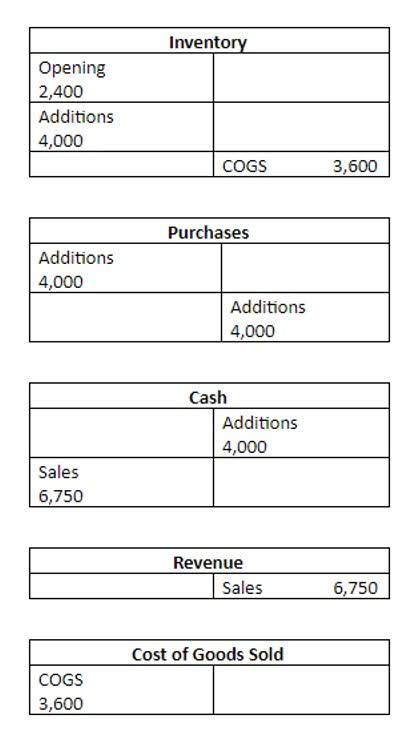GAAP: Understanding It and the 10 Key Principles
Content

Financial reporting should recognize and include all business assets, revenue, liabilities and expenses. Accounting staff use consistent procedures in financial reporting, enabling business finances to be compared from report to report. The importance of GAAP lies in the uniformity, comparability, and transparency of financial documents.
Why is GAAP important?
The importance of GAAP lies in the uniformity, comparability, and transparency of financial documents. Without these standards and practices, businesses could publish their reports differently, creating discrepancies, confusion, and potential opportunities for fraud.
The statement of cash flows must include individual sections for operating activities, investing activities, and financing activities. This means financial reporting should be made without any expectation for compensation. This is also a GAAP principle that states that an accountant must present fact-based data at all times and not present speculated data. This means that an accountant must be accurate while depicting the financial status of a company in a financial report.
What Is IFRS?
Investopedia requires writers to use primary sources to support their work. These include white papers, government data, original reporting, and interviews with industry experts. We also reference original research from other reputable publishers where appropriate. You can learn more about the standards we follow in producing accurate, unbiased content in oureditorial policy. Accountants produce financial statements to provide key information about the financial position of a company. It also reveals how well management has used the firm’s resources. McKinsey & Company, a global business consultancy, published a report arguing that income statements from companies that use GAAP reporting are hard to interpret.

While U.S. companies only need to follow GAAP domestically, if internationally traded or operating with a significant international presence, they often must adhere to the IFRS as well. Formally reported data must be fact-based and dependent on clear, concrete numbers. It’s easy to start wandering into speculation when you talk about finance—especially when thinking about the future of the company—and this principle makes sure to keep accountants firmly grounded in reality. Businesses can still engage in speculation and forecasting, of course, but they cannot add this information to formal financial statements. While the standards set by FASB and its predecessors account for the majority of GAAP, other rules can be found in statements from the Financial Reporting Executive Committee of the AICPA. Additional best practices exist outside formal pronouncements and are commonly accepted, due to their mainstream use.
Governmental Accounting Standards Board (GASB)
GAAP is the set of standards and regulations any publicly traded company in the U.S. is legally required to follow when preparing what is gaap financial documents. Any accountant handling financial reports and information for these companies must adhere to GAAP guidelines.
Adobe Non-GAAP EPS of $3.60 beats by $0.10, revenue of $4.53B … – Seeking Alpha
Adobe Non-GAAP EPS of $3.60 beats by $0.10, revenue of $4.53B ….
Posted: Thu, 15 Dec 2022 21:07:00 GMT [source]
The Financial Accounting Standards Board is responsible for establishing GAAP standards for commercial businesses. Generally accepted accounting principles, or GAAP, is a set of accounting standards followed by most U.S. businesses, nonprofit organizations, and state and local governments. GAAP is industry shorthand used to denote the standardized guidelines that specify how and what companies report to the public. Interested parties such as investors, lenders, and potential donors expect companies to adhere to GAAP reporting standards in order for them to understand and compare an organization’s financial performance.
What Are the Basic Accounting Theories?
She earned a bachelor of science in finance and accounting from New York University. Matos began her career at Ernst & Young, where she audited a diverse set of companies, primarily i…
- Accountants devote their entire careers to understanding and applying the specific rules that the FASB establishes in accordance with GAAP.
- Read our editorial process to learn more about how we fact-check and keep our content accurate, reliable, and trustworthy.
- Any financial statement must accurately reflect all of the company’s assets, expenses, liabilities and other financial commitments.
- ScaleFactor is on a mission to remove the barriers to financial clarity that every business owner faces.
- GAAP is not the international accounting standard, which is a developing challenge as businesses become more globalized.
In accounting, GAAP provides businesses with a uniform way to prepare financial statements and perform accounting tasks. GAAP helps small business owners and accounting professionals track a business’s finances. Presenting a business’s finances to outside entities (e.g., banks) becomes easier with GAAP. While all businesses are not required to use GAAP, you may want to consider preparing your financial statements with theses principles.
The principle of consistency
Together, these principles are meant to clearly define, standardize and regulate the reporting of a company’s financial information and to prevent tampering of data or unethical practices. Outside the U.S., the most commonly used accounting regulations are known as the International Financial Reporting Standards . The IFRS is used in over 100 countries, including countries in the European Union, Japan, Australia and Canada. The IFRS Foundation is responsible for overseeing, maintaining and updating the accounting standards in each of these countries.
What is the GAAP meaning?
What Is GAAP? Generally Accepted Accounting Principles (GAAP or US GAAP) are a collection of commonly-followed accounting rules and standards for financial reporting.